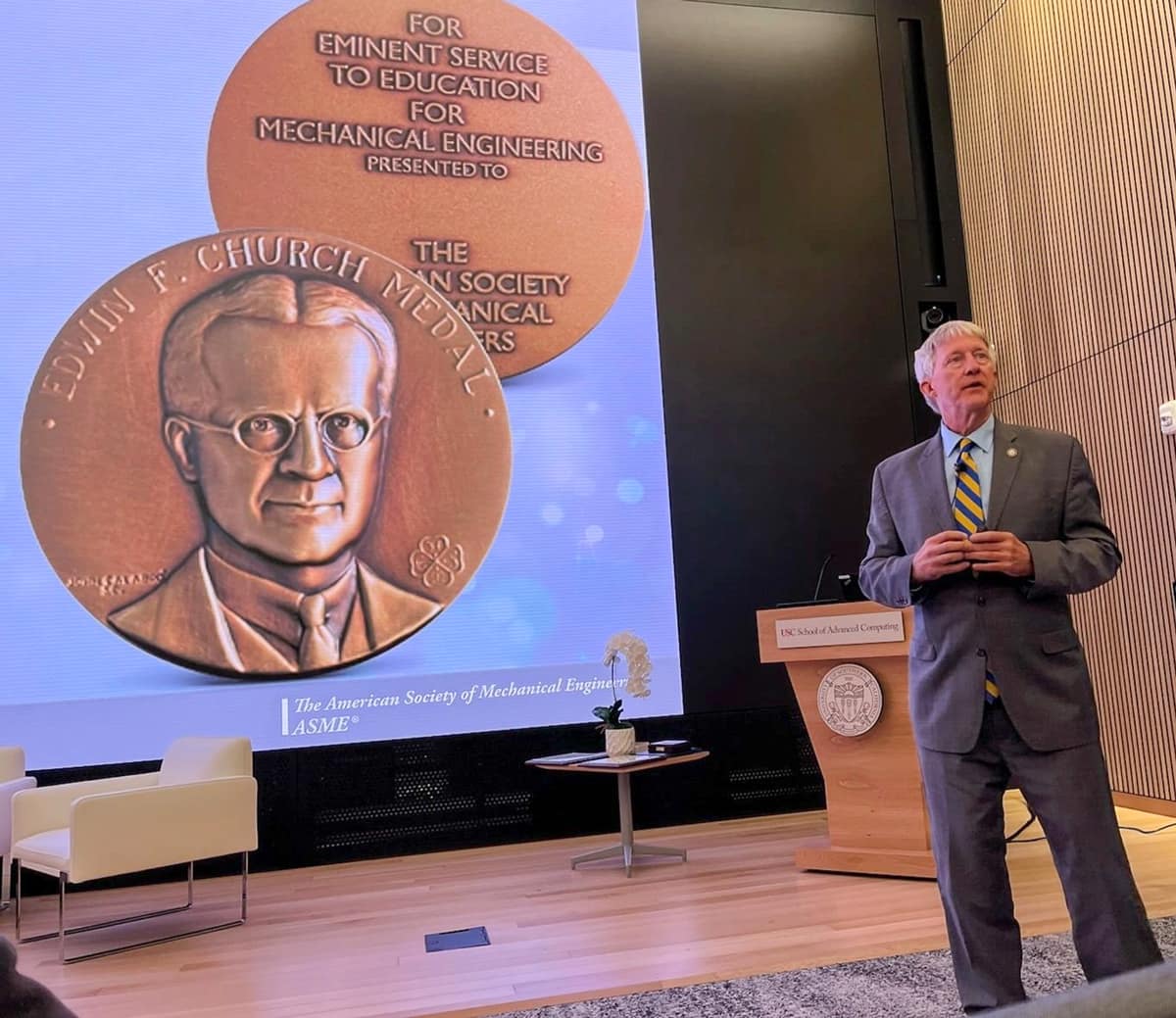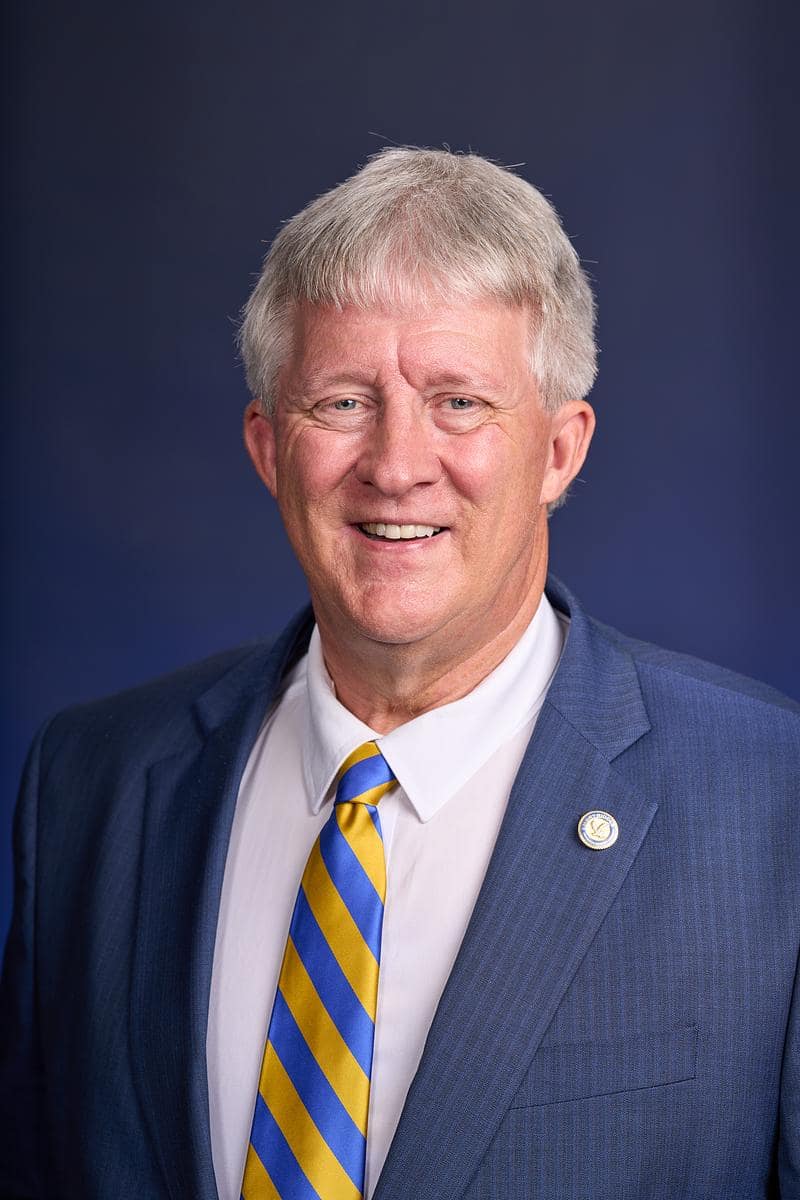‘All About the Students’: Eagle Honored for Outstanding Contributions to Engineering Education

In recognition of his long career of service to mechanical engineering education, Dr. Joseph J. Rencis, associate dean of Embry-Riddle Aeronautical University’s Worldwide School of Engineering, has been named the 2025 American Society of Mechanical Engineers (ASME) Edwin F. Church Medalist.
The Edwin F. Church Medal, which is awarded to one person annually, recognizes individuals whose dedication to engineering advances “the value, importance and attractiveness of mechanical engineering education, according to an ASME news release.
“Dr. Rencis’ recognition with the ASME Edwin F. Church Medal is a testament to his outstanding contributions to engineering education and his unwavering commitment to student success,” said Dr. Bettina Mrusek, dean of the Worldwide College of Aviation. “His leadership has not only advanced the field but has also inspired countless students and colleagues. This achievement reflects both his technical excellence and his deep dedication to shaping the next generation of engineers.”

Dr. Rencis joined the Worldwide School of Engineering in 2024. (Photo: Embry-Riddle)Rencis, a first-generation college graduate, noted that “one big part” of earning the Edwin F. Church Medal has been his long-term commitment to broadening access for first-generation, low-income and underserved students, as well as his dedication to strengthening success outcomes for all students.
“My leadership philosophy is all about the students. Everything really revolves around them,” Rencis said.
Rencis began his academic career in 1985. In the nearly 40 years since, he has published more than 140 conference and journal papers. He has also held leadership roles at half a dozen institutions. But his impressive career was far from assured.
As a teenager, Rencis was uncertain about whether higher education was a good fit for him and almost opted against college. His eventual embrace of higher education and academia was thanks, in part, to a technical high school shop teacher who helped Rencis discover his potential and ignited his passion for student success. As a result, “I feel like I have to give back,” he said.
He ultimately earned an M.S. in Civil Engineering from Northwestern University in Evanston, Illinois, and a Ph.D. from Case Western Reserve University in Cleveland, Ohio.
Rencis’ early hesitancy about college, however, has shaped his educational philosophy and the trajectory of his career. From his first role in mechanical engineering at Worcester Polytechnic Institute (WPI) in Massachusetts to his current position at Embry-Riddle, Rencis has focused on recruitment, retention and recognition — his “three Rs” — to expand the reach of engineering education and improve accessibility to engineering, technology and computer science as a whole. Rencis joined the Worldwide Campus in 2024.
“I accepted the job because it presents an incredible opportunity to grow both personally and professionally,” Rencis said. “Everything we do is around a high-quality student-centric engineering education.”
Flexible attendance options and student support, for example, can help open doors for students who might otherwise believe an engineering degree isn’t right for them, he said.
Over the years, Rencis has also worked to develop cross-campus and community programs that teach students innovation, entrepreneurship and leadership — key skills for success in the engineering sector.
As the dean of engineering at institutions such as California State Polytechnic University, Pomona, and Tennessee Technological University in Cookeville, he partnered with campus colleagues to transform college-level initiatives into larger partnerships that helped the next generation see themselves potentially in engineering.
“I think the big piece of this really is not so much about me,” Rencis said of the award. “I've been very fortunate to work at excellent institutions. The faculty, the staff, the students and friends of our departments and colleges have all contributed to our progress. Ultimately, this is also a reflection of their efforts.”
The American Society of Mechanical Engineers — which has more than 75,000 members from over 130 countries — “promotes the art, science and practice of multidisciplinary engineering.” The organization was founded in 1880 and first awarded the Edwin F. Church Medal in 1972.
“I’m humbled and honored by this award,” Rencis said. “I want to thank everyone who has supported me along the way — this achievement wouldn’t have been possible without my family and professional family.”
